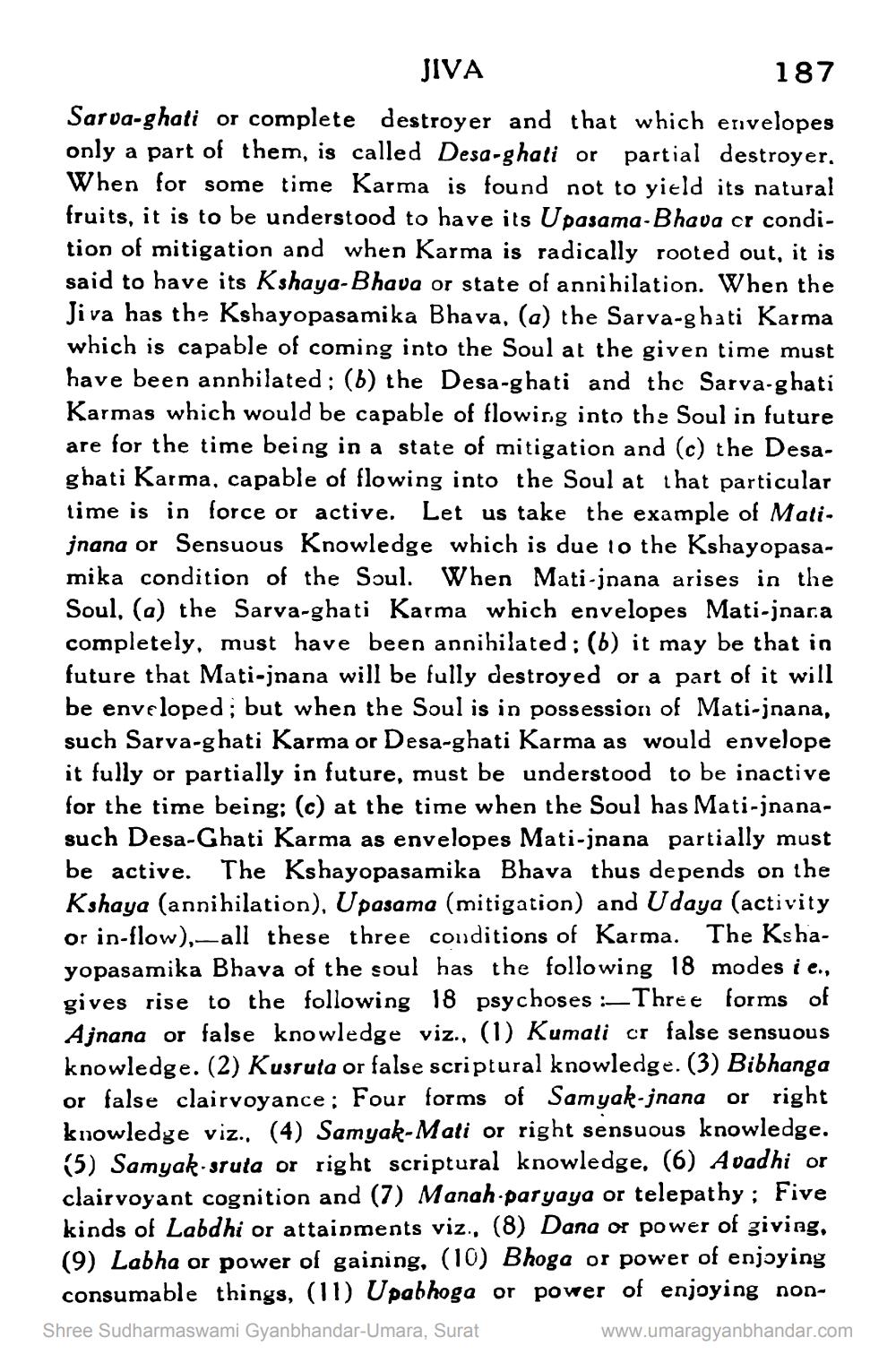________________
JIVA
187
Sarva-ghati or complete destroyer and that which envelopes only a part of them, is called Desa-ghati or partial destroyer. When for some time Karma is found not to yield its natural fruits, it is to be understood to have its Upasama-Bhava cr condition of mitigation and when Karma is radically rooted out, it is said to have its Kshaya-Bhava or state of annihilation. When the Jiva has the Kshayopasamika Bhava, (a) the Sarva-ghati Karma which is capable of coming into the Soul at the given time must have been annhilated; (b) the Desa-ghati and the Sarva-ghati Karmas which would be capable of flowing into the Soul in future are for the time being in a state of mitigation and (c) the Desaghati Karma, capable of flowing into the Soul at that particular time is in force or active. Let us take the example of Matijnana or Sensuous Knowledge which is due to the Kshayopasamika condition of the Soul. When Mati-jnana arises in the Soul, (a) the Sarva-ghati Karma which envelopes Mati-jnara completely, must have been annihilated; (b) it may be that in future that Mati-jnana will be fully destroyed or a part of it will be enveloped; but when the Soul is in possession of Mati-jnana, such Sarva-ghati Karma or Desa-ghati Karma as would envelope it fully or partially in future, must be understood to be inactive for the time being; (c) at the time when the Soul has Mati-jnanasuch Desa-Ghati Karma as envelopes Mati-jnana partially must be active. The Kshayopasamika Bhava thus depends on the Kshaya (annihilation), Upasama (mitigation) and Udaya (activity or in-flow), all these three conditions of Karma. The Kshayopasamika Bhava of the soul has the following 18 modes i e., gives rise to the following 18 psychoses: Three forms of Ajnana or false knowledge viz., (1) Kumati er false sensuous knowledge. (2) Kusruta or false scriptural knowledge. (3) Bibhanga or false clairvoyance; Four forms of Samyak-jnana or right knowledge viz., (4) Samyak-Mati or right sensuous knowledge. (5) Samyak-sruta or right scriptural knowledge, (6) Avadhi or clairvoyant cognition and (7) Manah paryaya or telepathy; Five kinds of Labdhi or attainments viz., (8) Dana or power of giving, (9) Labha or power of gaining, (10) Bhoga or power of enjoying consumable things, (11) Upabhoga or power of enjoying nonShree Sudharmaswami Gyanbhandar-Umara, Surat
www.umaragyanbhandar.com




